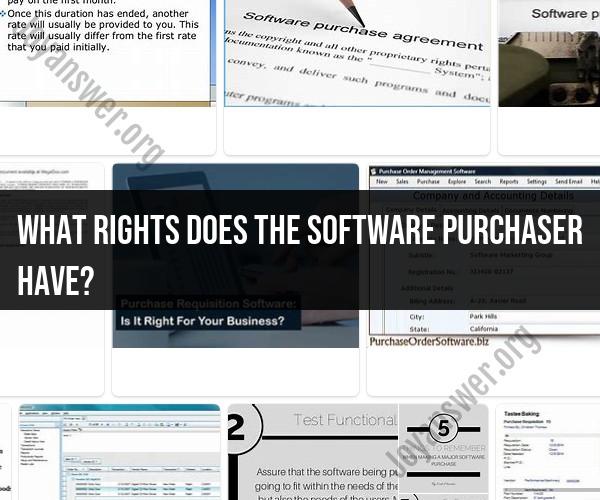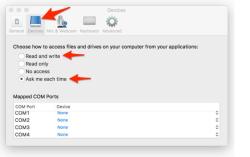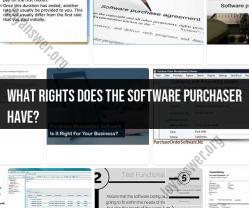What rights does the software purchaser have?
Software purchaser rights can vary depending on the specific software and the terms of the license agreement. However, there are several common rights that software purchasers typically have:
Right to Use: The primary right of a software purchaser is the right to use the software according to the terms of the license agreement. This includes the right to install and run the software on the specified number of devices or for the agreed-upon number of users.
Right to Make Copies: Some software licenses allow purchasers to make backup copies of the software for archival or disaster recovery purposes. However, this is not always the case, so it's essential to check the license agreement.
Right to Updates and Upgrades: Many software licenses include the right to receive updates and upgrades to the software during a specified period. These updates may include bug fixes, security patches, and new features.
Right to Transfer: Some software licenses permit the purchaser to transfer the software to another individual or organization. This is often subject to certain conditions and may require notifying the software publisher.
Right to Discontinue Use: The purchaser generally has the right to discontinue using the software at any time. However, this may not entitle them to a refund, and they may still be bound by any remaining contractual obligations.
Right to Support: Depending on the software and the license agreement, the purchaser may have the right to receive technical support and assistance from the software publisher or vendor.
Right to Fair Use: In some jurisdictions, software purchasers have the right to use the software in ways that are considered "fair use," such as for educational or research purposes, even if the license agreement restricts certain activities.
It's crucial to read and understand the specific terms and conditions of the software license agreement before purchasing and using the software. License agreements can vary significantly from one software product to another, and they may include restrictions or limitations on how the software can be used.
Additionally, the rights of software purchasers may be subject to copyright law, intellectual property laws, and contract law, so it's essential to comply with these legal frameworks when using software. If there are any questions or concerns about software purchaser rights, it's advisable to seek legal advice or consult with the software vendor or publisher for clarification.








